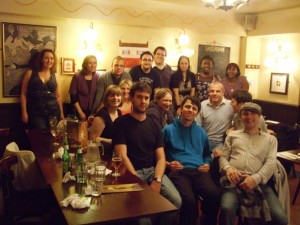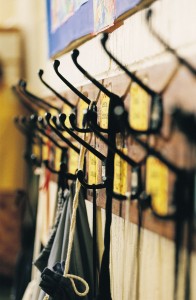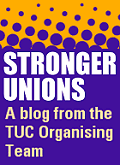
Fellow organising academy trainee Dave Condliffe recently sent me the link to a really shocking Channel 4 Dispatches programme called Britain’s Secret Slaves (broadcast Monday 30th August 10).
The programme is about domestic workers brought into this country from abroad to work as slaves for the rich and powerful. Some of their employers are foreign diplomats who are above the law, but they are by no means all foreign and the range and variation of the employers concerned is striking.
The programme presents example after example of men and women (some trafficked in as children) who have been physically abused, made to sleep on floors and in cupboards and forced to work 20 hours a day for very little or no pay by the mega-wealthy families who employ them across West London.
This is totally bizarre. Why would rich people with plenty of money treat human beings with such brutality? Surely they would be better served as employers by treating their employees well and paying them a decent wage.
That, I guess, is our common reaction – it just doesn’t make any sense to most people in Britain. It’s weird! Bizarre! Pathological! But I think there is a deeper truth here which needs expressing.
Most people in Britain only find this behaviour unusual and remarkable because of what we as a nation have learnt to take for granted. In fact this type of brutal treatment of workers by rich employers is actually the historical norm. Think of feudal England and early industrial Britain. It’s a norm altered in our own society by active resistance over generations. What made the difference in our own case is trade unionism.
But this is not a connection which most people now make. Trade unions changed our society to achieve a whole range of things to make life roughly bearable (negotiated wages and conditions, the NHS, our state education system, the list is a long one). The problem is that most people nowadays don’t get this and do not relate these hard won gains to the pressure brought to bear historically by trade unionism. People do not commonly understand what real pressure means in a social context.
Now we risk these things being taken away. We dreamers! Brendan Barber has warned that Britain will become a ‘darker, brutish and more frightening place’ as the government’s so-called austerity measures take effect. I think this is an understatement.
Whilst not discussed, what this Dispatches programme conveys is the image of a world without trade unions or before trade unions. It provides a picture of the general tendency of employers without trade unionism. This is what happens where there is no effective permanent organised structure to underwrite a rule of law that protects working people. This is the world without trade unionism and that’s what you see in this programme.
The programme is available to watch online at 4OD for the next 7 days http://www.channel4.com/programmes/dispatches/4od#3117241
I should make clear that attempts are being made to help migrant slave workers in the UK. Justice 4 Domestic Workers (established 2009) is an organisation of Migrant Workers who work in private houses in the UK. It is supported by Unite the Union and Kalayaan (a charity which provides advice, advocacy and support services in the UK for migrant domestic workers).
PS No sooner had I drafted this blog than Dispatches announced a programme on Trade Unionism to be aired on Monday 27th September at 7.30. Let’s see what they say.
Tracey Bent, Year 12 Organising Academy Trainee, sponsored by the CWU
Filed under: Uncategorized | No Comments »











